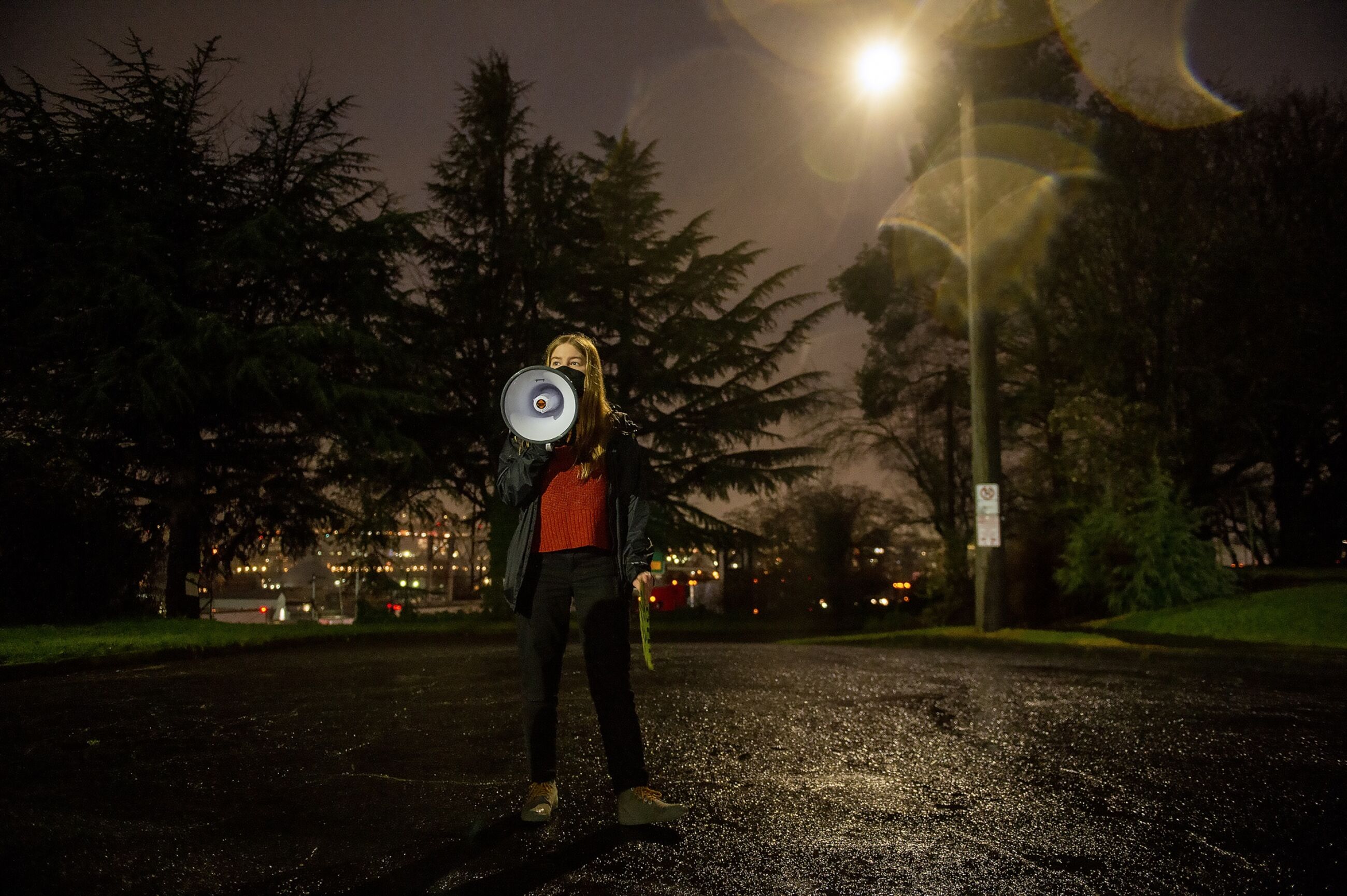The Road Warriors
For months, a group of youthful climate activists have waged a battle to halt a Portland highway expansion — and turn U.S. transportation policy around.

By Laura Bliss
Bloomberg CityLab
January 22, 2022, 5:00 a.m. PT, Updated
Every other Wednesday, 15-year-old Adah Crandall catches the bus from her high school in Northeast Portland to spend the early evening with a group of friends outside the Oregon Department of Transportation’s downtown headquarters.
It’s an after-school activity that Crandall, whose wavy blonde hair runs close to her elbows, wishes the world didn’t require. Since April 2021, she and her crew have been protesting the agency’s plans to widen a slew of highways that could increase CO2 emissions by tens of thousands of tons per year.
“People don’t think of ODOT as a villain in the climate crisis, but they don’t realize that 40% of our state’s carbon emissions come from transportation, come from the freeways that ODOT is trying to expand,” Crandall told a reporter at a protest in June, where a sidewalk chalked the color of a smoke-filled sky declared: “Oregon Department of Climate Arson.”
In August, she and fellow protesters remembered the 100-plus lives lost in Oregon’s searing 2021 heat wave, waving signs that read “Climate Leaders Don’t Widen Freeways.” In October, they trick-or-treated at ODOT’s door to deliver their demands; over the holidays, they sang climate-themed carols: “You better watch out/You better not lie/You better stop letting Oregonians die/Expanding freeways makes you a clown.”
Their themes may vary, but the purpose of Youth vs. ODOT, as the campaign is called, is always the same: These teens and 20-somethings are determined to connect the existential threat of climate change clearly and inextricably with road expansion. As far as organizers know, the effort is unprecedented in the U.S. in its sustained single-mindedness.
It also could be effective: On Jan 18, the Federal Highway Administration rescinded a key approval of the controversial highway widening that’s been a prime target of the young protesters, the Rose Quarter Improvement Project along Portland’s Interstate 5. FWHA also requested that the state redo its environmental study.

Youth vs. ODOT’s campaign is well timed. Over the next five years, transportation departments across the U.S. will receive some $350 billion in federal highway funding — more than has ever been disbursed — from President Joe Biden’s Infrastructure Investment and Jobs Act. States have flexibility to spend a lot of that money on public transit, bike lanes, electric vehicles and other lower-carbon choices. But there has been little indication — even from progressive governors — that the vast majority will be used for anything other than roads.
Vehicles generate close to 30% of U.S. greenhouse gas emissions, more than any other sector. The Intergovernmental Panel on Climate Change has made clear that emissions must fall drastically, lest we face runaway, catastrophic warming. The infrastructure bill could be part of that solution, if states prioritized repair and maintenance of existing roads over expansion, as well as investments in low-carbon transportation. But as a recent report from the Georgetown Climate Center put it, “the IIJA funding could result in an increase in emissions over what we’d expect” if it paves new roads and lanes instead.
If the U.S. has a shot at reining in climate change, highway policy needs to turn on its head. The kids are here to point the way.
Continue reading in Bloomberg CityLab…
